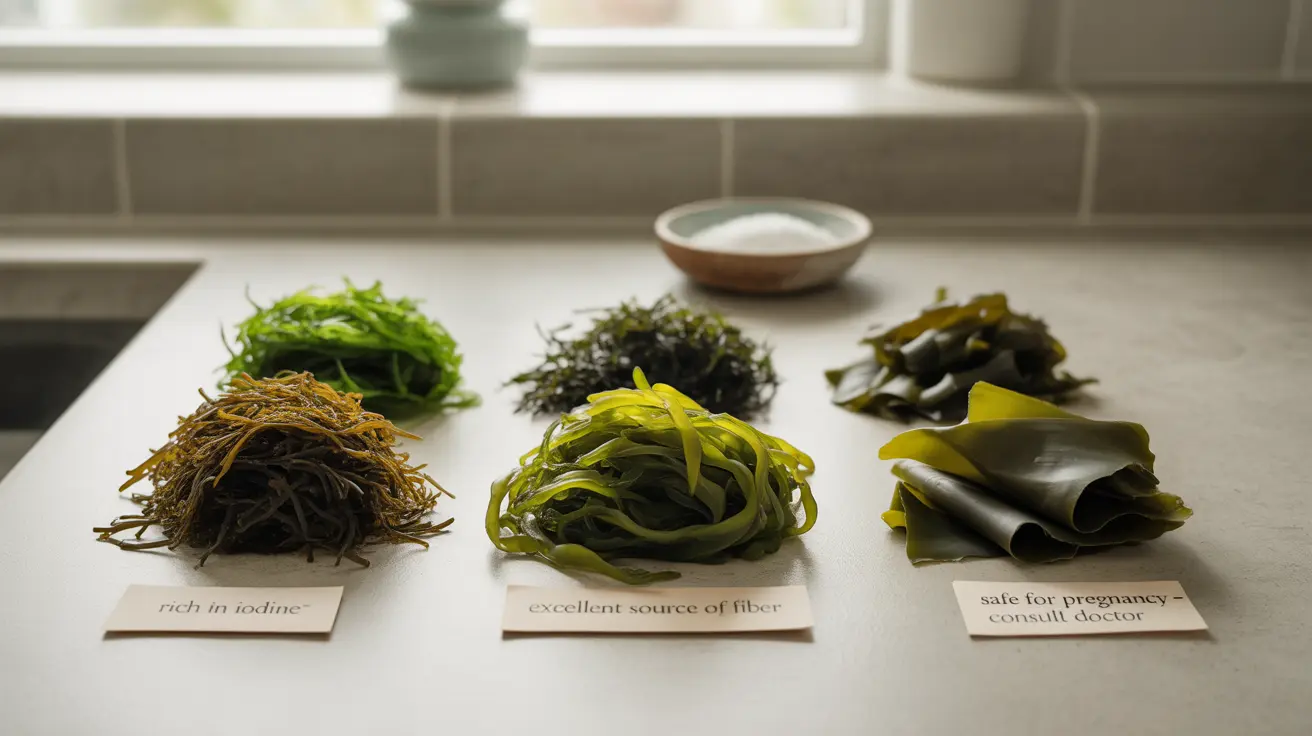During pregnancy, many expectant mothers wonder about the safety and benefits of including seaweed in their diet. As a nutrient-rich food source, seaweed can offer valuable vitamins and minerals for both mother and baby, but it's essential to understand the proper amounts and types to consume safely during pregnancy.
This comprehensive guide will explore everything you need to know about eating seaweed while pregnant, including its nutritional benefits, potential risks, and how to incorporate it safely into your pregnancy diet.
Understanding Seaweed's Nutritional Value During Pregnancy
Seaweed is packed with essential nutrients that can be particularly beneficial during pregnancy, including:
- Iodine for healthy thyroid function and fetal development
- Iron for preventing anemia
- Folate for neural tube development
- Calcium for bone health
- Omega-3 fatty acids for brain development
However, it's crucial to consume seaweed in moderation, as some varieties can contain excessive amounts of certain nutrients that might affect pregnancy.
Safe Consumption Guidelines
When it comes to eating seaweed during pregnancy, moderation is key. Healthcare providers generally recommend limiting seaweed consumption to 1-2 servings per week. A typical serving size is about:
- 1 sheet of nori (used in sushi)
- 1 tablespoon of dried seaweed
- 1/4 cup of fresh seaweed
Types of Seaweed and Their Safety Profiles
Different types of seaweed vary in their nutrient content and safety profiles during pregnancy:
- Nori (red): Generally considered safest during pregnancy
- Wakame (brown): Moderate iodine content, consume in moderation
- Kelp (brown): High iodine content, limit consumption
- Dulse (red): Moderate nutrient levels, generally safe in recommended amounts
Potential Risks and Considerations
While seaweed can be beneficial during pregnancy, there are some important considerations:
Heavy Metals and Contaminants
Seaweed can absorb heavy metals from marine environments. To minimize exposure:
- Choose seaweed from reputable sources
- Opt for organic varieties when possible
- Avoid wild-harvested seaweed from unknown sources
- Check product labels for third-party testing
Iodine Content
Excessive iodine intake can affect thyroid function in both mother and baby. This is particularly important when consuming brown seaweed varieties, which typically contain higher iodine levels.
Safe Ways to Include Seaweed in Your Pregnancy Diet
To safely incorporate seaweed into your pregnancy diet:
- Use nori sheets for homemade sushi rolls (with pregnancy-safe fillings)
- Add small amounts of dried seaweed to soups and broths
- Sprinkle seaweed flakes on salads or rice dishes
- Choose pre-packaged seaweed snacks with clear nutritional information
Frequently Asked Questions
1. Is it safe to eat seaweed during pregnancy, and how much is considered safe?
Yes, seaweed can be safely consumed during pregnancy when limited to 1-2 servings per week. Stick to reputable brands and avoid exceeding recommended portions to prevent excessive iodine intake.
2. What are the nutritional benefits of eating seaweed while pregnant?
Seaweed provides essential nutrients including iodine, iron, folate, calcium, and omega-3 fatty acids, which support fetal development and maternal health during pregnancy.
3. Can eating too much seaweed harm my thyroid or my baby's development during pregnancy?
Yes, excessive seaweed consumption can lead to too much iodine intake, which may affect thyroid function in both mother and baby. Stick to recommended serving sizes and consult your healthcare provider about appropriate amounts.
4. Which types of seaweed are safest to consume during pregnancy—brown, green, or red?
Red seaweed varieties like nori are generally considered safest during pregnancy, while brown seaweeds like kelp should be limited due to higher iodine content. Green seaweeds fall in the middle range for safety.
5. How can I include seaweed safely in my pregnancy diet without risking exposure to heavy metals?
Choose seaweed products from reputable manufacturers, opt for organic varieties when possible, and avoid wild-harvested seaweed. Look for products with third-party testing for contaminants, and always follow serving size recommendations.
Remember to always consult with your healthcare provider about incorporating seaweed into your pregnancy diet, especially if you have thyroid conditions or other health concerns.




